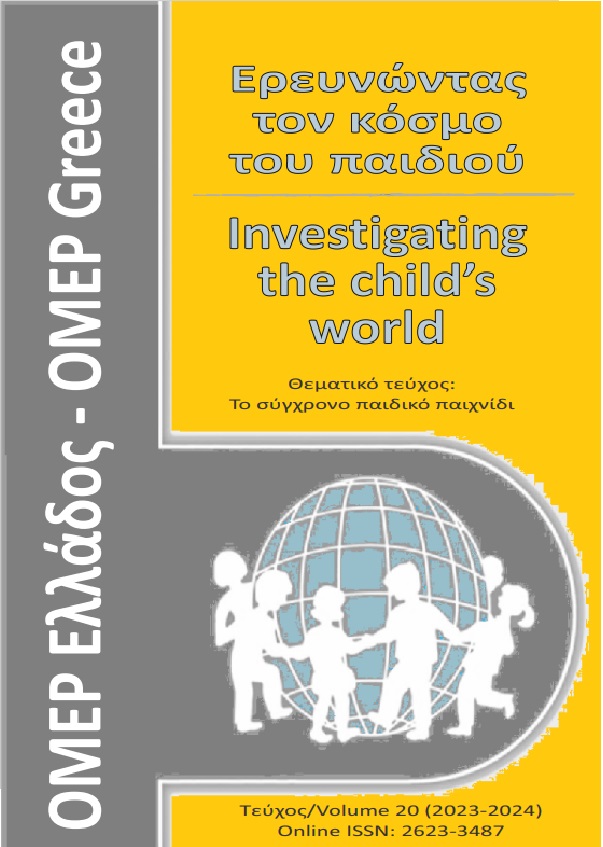A multilingual kindergarten: Gamified trends and challenges in Second Language Learning

Abstract
The research focuses on second language learning through gamification in preschoolers with a refugee and/or migrant experience. It aims to map and analyze innovative gamified interventions that have been implemented in the context of preschool education in refugee populations and highlight the learning outcomes. A scoping study was conducted, and eight (8) gamified interventions were identified highlighting the possible trends and the current challenges in preschool education, emphasizing technology-enhanced education and innovation. Data analysis demonstrated the gamified techniques and game design elements that meet the social and linguistic needs of the study population. Lastly, the learning benefits offered by gamified interventions to children with migrant/refugee experience and the considerations for their inclusion in the educational framework of the kindergarten are highlighted.
Article Details
- How to Cite
-
Bizota, K., & Papadopoulou, M. (2024). A multilingual kindergarten: Gamified trends and challenges in Second Language Learning. Investigating the child’s World, 20, 156–172. https://doi.org/10.12681/icw.35380
- Section
- Scientific articles & educational projects

This work is licensed under a Creative Commons Attribution-NonCommercial 4.0 International License.
Authors who publish with this journal agree to the following terms:
· Authors retain copyright and grant the journal right of first publication with the work simultaneously licensed under a Creative Commons Attribution Non-Commercial License that allows others to share the work with an acknowledgement of the work's authorship and initial publication in this journal.
· Authors are able to enter into separate, additional contractual arrangements for the non-exclusive distribution of the journal's published version of the work (e.g. post it to an institutional repository or publish it in a book), with an acknowledgement of its initial publication in this journal.
· Authors are permitted and encouraged to post their work online (preferably in institutional repositories or on their website) prior to and during the submission process, as it can lead to productive exchanges, as well as earlier and greater citation of published work.


